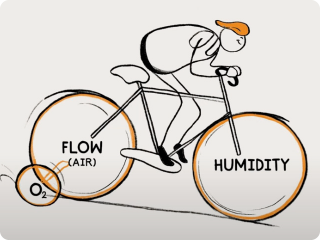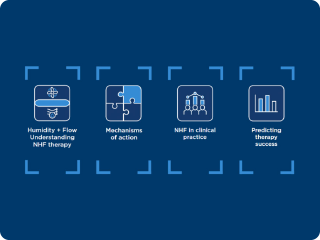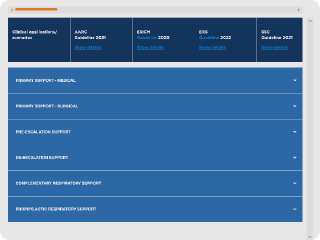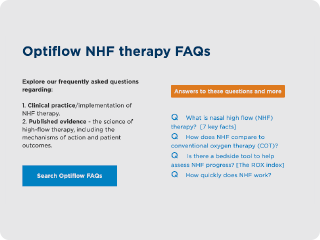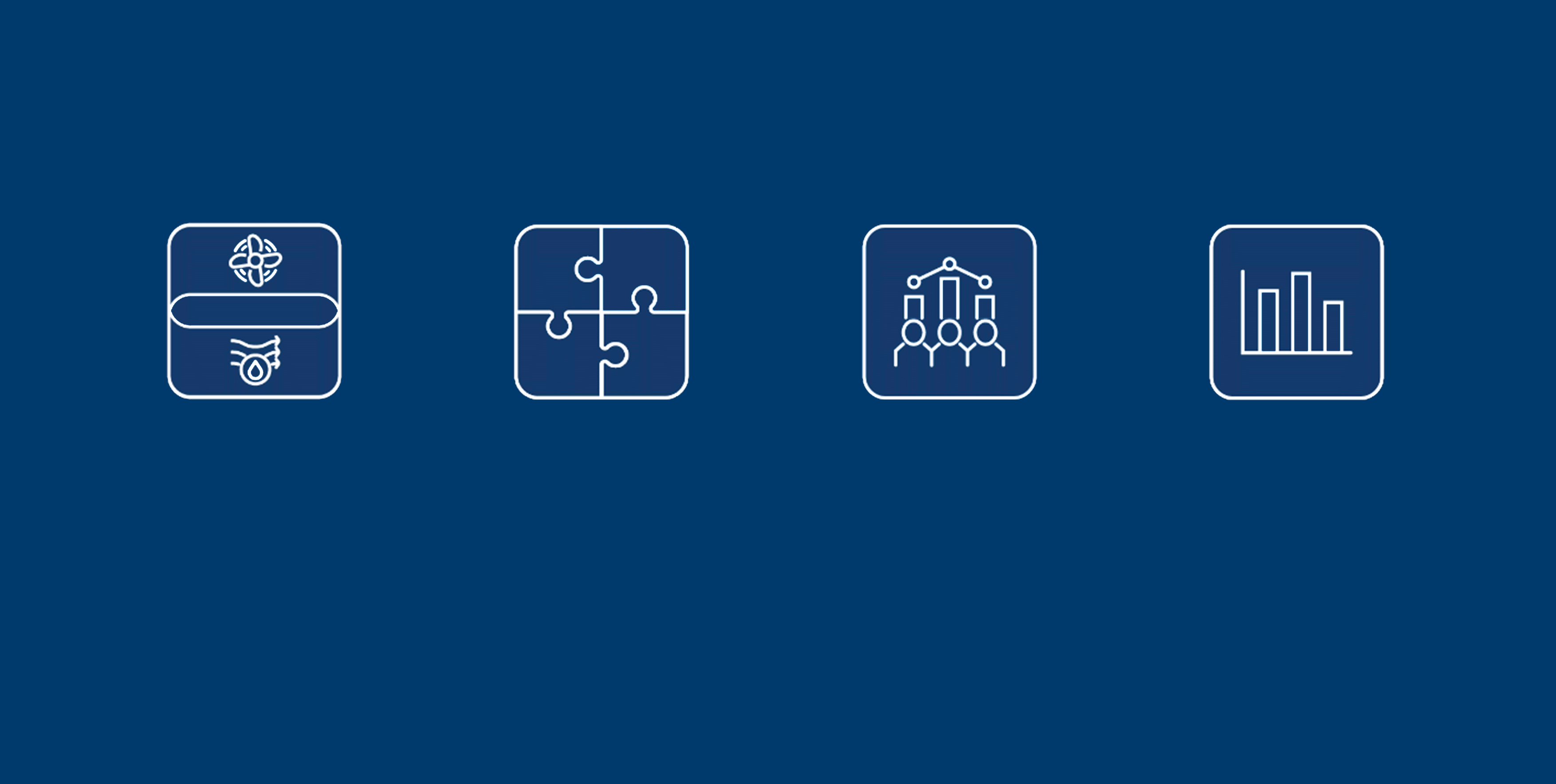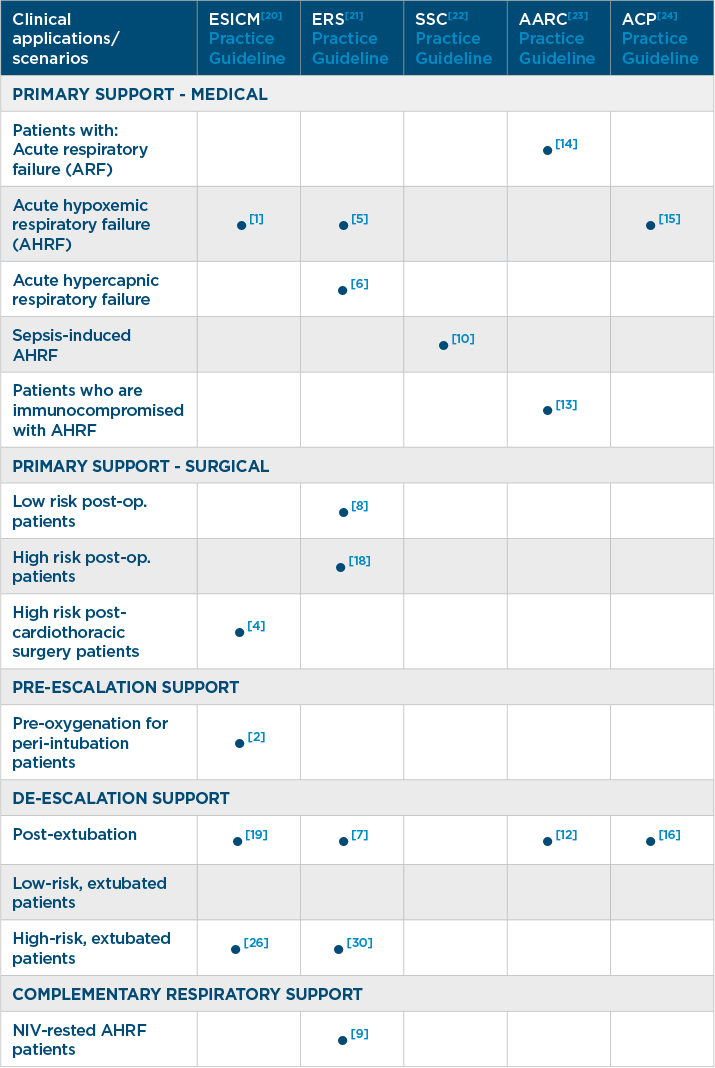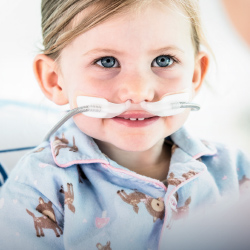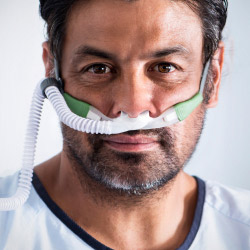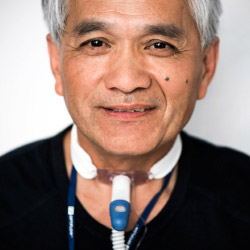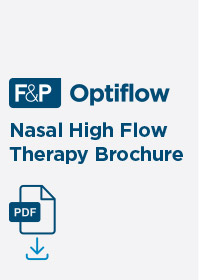Accelerate your understanding of High Flow Therapy
If you’re new to High Flow Therapy, training others, or want a quick refresher, follow this learning plan to accelerate your knowledge.
What is High Flow Therapy?
Introducing the first F&P Micro Moment! A two-minute animated overview.
This first episode focuses on high-flow therapy and the benefits to your patients. Watch below or jump to the second episode: "How do I set up high-flow therapy?"
Once you've watched the animation, check out this FAQ for some context as to where high flow fits in to the care continuum.
Who does NHF benefit, what does the evidence tell us?
Published guidelines highlight the breadth of application of NHF. Explore the table.
Hundreds of randomized controlled trials have been consolidated into clinical practice guidelines.
We’ve created a table that will help you review the guidelines by patient population and application.
Watch Optiflow NHF Therapy in practice
Learn about the benefits clinicians saw when they introduced NHF to their hospital.
- This video shows the introduction of the Airvo 2 device across departments of the Royal Berkshire Hospital in Reading, UK.
- Hospital clinicians talk about the benefits found both to the patients and hospital since its introduction.
Options for delivering Optiflow NHF Therapy
There are several ways to deliver Optifow therapy - check out our quick guide below
1. You can use a dedicated, standalone device such as the Airvo Optiflow systemor
2. You can use an NHF-capable mechanical ventilator. We call this a vent-driven system.
See the images below and for more details download our equipment guide.
Airvo Optiflow NHF Therapy system
The following figure demonstrates what is required for an Airvo Optiflow system.
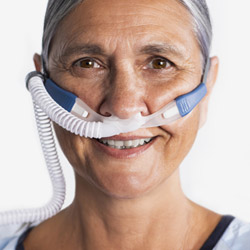
Optiflow+ Duet
nasal cannula interface
Delivers asymmetric nasal high flow therapy, reshaping respiratory support.
Latest NHF interface
Optiflow Junior 2 nasal cannula interface series
Designed for neonates, infants, and children.
1. Clinical practice/implementation of NHF therapy.
2. Published evidence - the science of high-flow therapy, including the mechanisms of action and patient outcomes.
